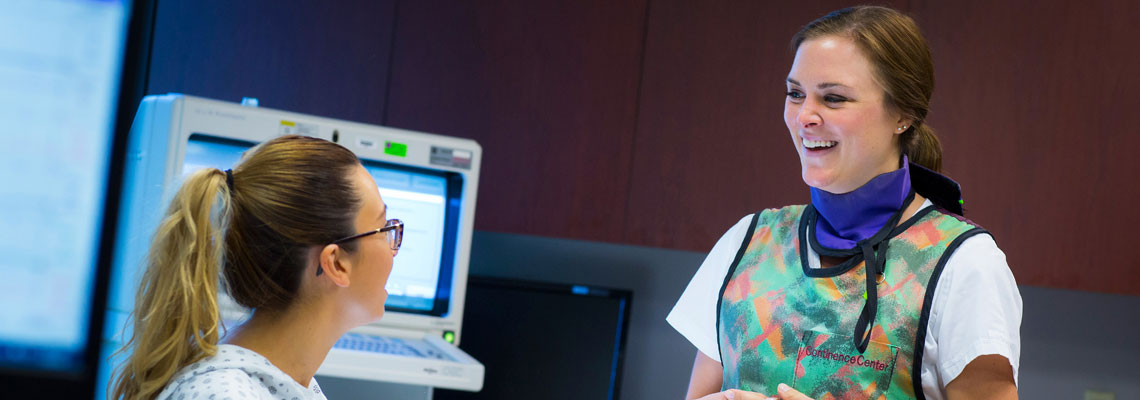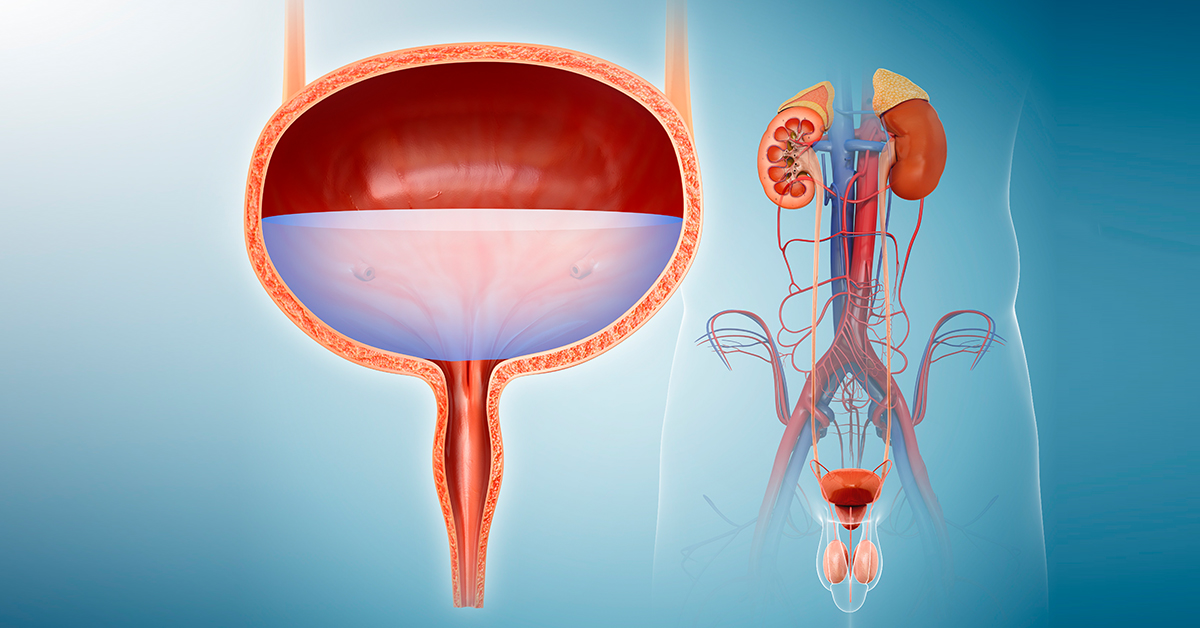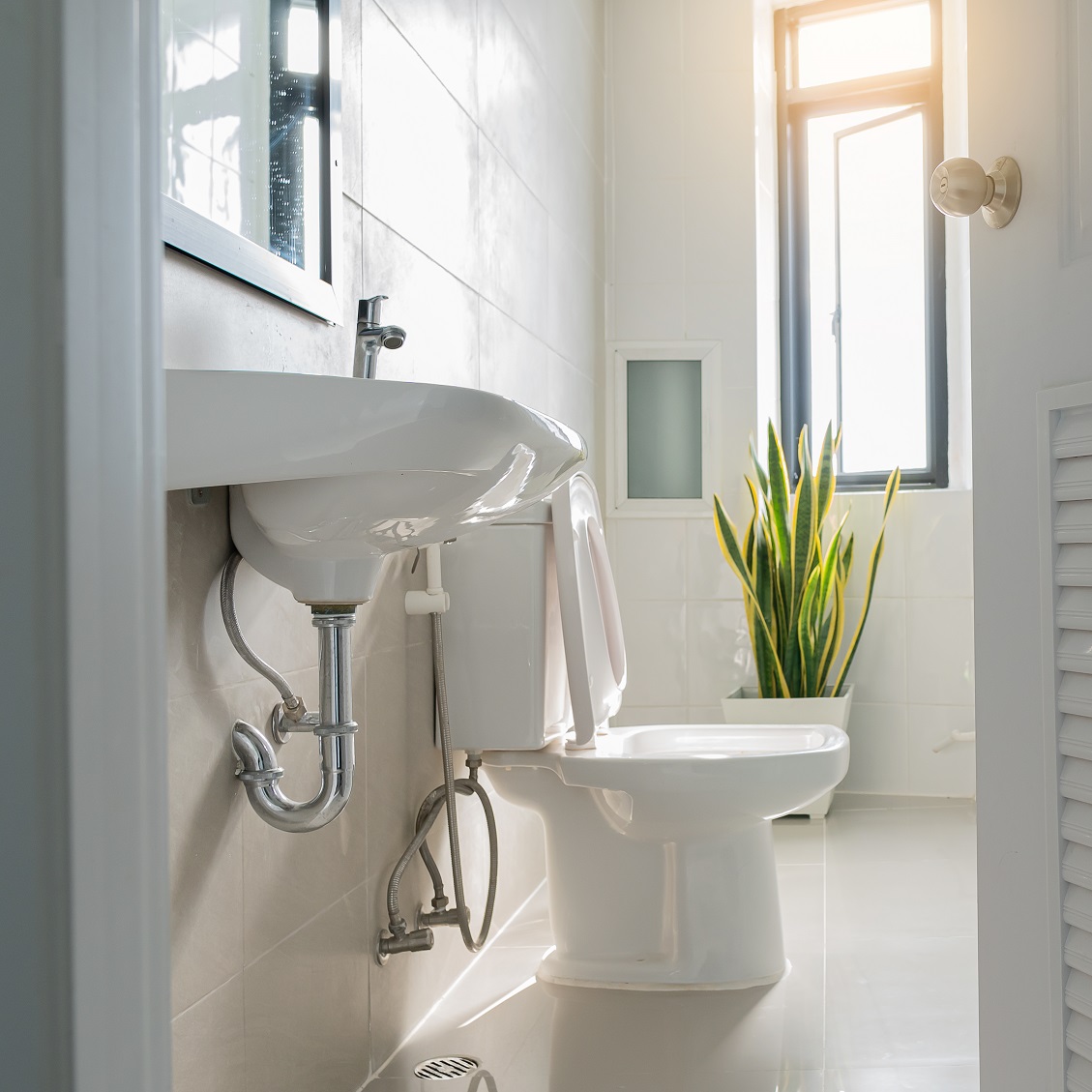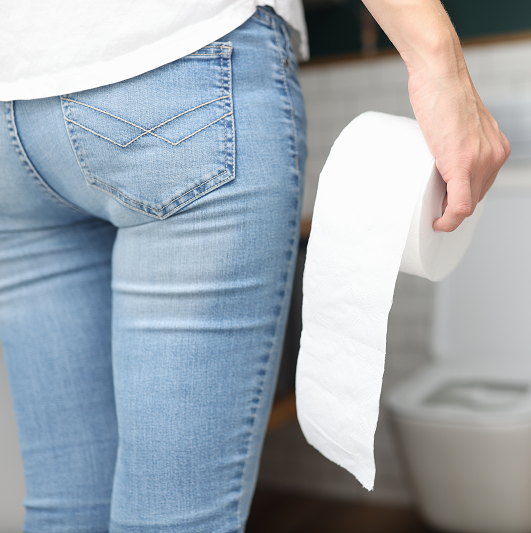Urinary Incontinence Diagnosis and Treatment
If you suffer from urinary incontinence, you are not alone. While urinary incontinence can be embarrassing, you don’t have to live with bladder control problems.
The experts in female pelvic medicine and reconstructive surgery at Hackensack Meridian Health are nationally and internationally known for the diagnosis and treatment of urinary incontinence. With two female doctors on staff, our team understands what you are going through. We offer the latest technologies to improve your condition. Our goal is to help you achieve the best result and return to a more active lifestyle.
Urinary Incontinence Symptoms
Urinary incontinence can range from leaking urine to complete loss of bladder control. While problems with bladder control can affect both men and women, women are twice as likely to experience it due to pregnancy, childbirth, or as a result of hormone changes with menopause. Certain medications and medical conditions also can contribute. Three main types of urinary incontinence are:
- Stress incontinence: Pressure on your bladder from activity such as coughing, sneezing or heavy lifting causes you to lose urine.
- Urge incontinence or overactive bladder: You feel a strong need to urinate and lose urine before you can get to the toilet.
- Overflow incontinence: Your bladder becomes too full and you lose urine.
If you experience any of those symptoms and suspect you have urinary incontinence, the urologists at Hackensack Meridian Health can diagnose the cause and offer a treatment plan.
Diagnosing Urinary Incontinence
Urinary incontinence usually can be diagnosed based on a physical examination and a history of symptoms. Your urologist may ask you to keep a bladder diary – a record over several days of how much you drink, when you urinate, the amount of urine you produce, whether you had a sudden urge to urinate and the number of times you leak urine.
If testing is required, our urologists have the latest tools to diagnose your type of urinary incontinence.
- Urinalysis: A sample of your urine is checked for signs of infection, traces of blood or other signs that can help diagnose the cause of your urinary incontinence.
- Post-Void Residual Measurement: Your doctor may use an ultrasound to measure any urine left in your bladder after you urinate. A large amount of urine left in your bladder may mean a blockage in your urinary tract or a problem with bladder nerves or muscles.
- Video Urodynamic Testing: You have access to the area’s most advanced testing for urinary incontinence at Hackensack Meridian Health. We are the only provider in the Bergen County area offering state-of-the-art video urodynamic testing. The test allows us to learn more about your urine flow and the strength of the muscles that surround the urethra, vagina and rectum. How It Works:
- You sit on a special table and a small catheter is passed through the urethra into the bladder.
- Digital images are taken as your bladder is filled and emptied.
- Monitors record pressure and muscle activity as you cough and push to put stress on your pelvic floor.
- The outpatient test takes less than an hour and you should not feel any pain.
Incontinence Specialists in New Jersey
Search our network of incontinence specialists or find a care location close to home and make an appointment today.
Urinary Incontinence Treatment Options
If you’ve been diagnosed with urinary incontinence, our team will create a treatment plan specifically designed for you. We offer the latest approaches – from making changes to your bathroom habits to implanting a “bladder pacemaker.” Our specialists are first to offer novel treatments and devices with effective, long-term success.
All types of urinary incontinence can be helped with behavior and lifestyle changes rather than medical intervention. This includes:
- Adjusting the length of time between trips to the toilet
- Learning to fully empty your bladder
- Managing the amount and types of fluids you drink
Medication
A number of oral medications are effective for treating urge incontinence and overactive bladder by relieving pain, relaxing your bladder muscle and protecting your bladder from irritation.
Botox®
Botulinum toxin type A can help your bladder relax and allow it to fill with more urine before you have the urge to go. The urologist uses a cystoscope to enter the bladder and inject Botox directly into the bladder wall. The procedure takes about 5 minutes under local anesthesia in your doctor’s office. Injections often need to be repeated two to four times per year.
Percutaneous Tibial Nerve Stimulation
Percutaneous tibial nerve stimulation (PTNS) can be effective for treating overactive bladder. The majority of patients experience significant improvements in frequency and urgency. We offer PTNS in one of two forms.
- Percutaneous: A small electrode that looks like an acupuncture needle is inserted near the tibial nerve in your lower leg. Impulses are sent to the tibial nerve via an electrical stimulator. This non-surgical approach takes about 30 minutes in your doctor’s office, once a week over 12 weeks and then monthly for maintenance.
- Implant: Newer PTNS methods are evolving. We are among the centers that will soon be offering a small implant the size of a coin surgically implanted in the ankle alongside the tibial nerve. The implant provides continuous therapy, avoiding frequent visits to your doctor’s office.
Sacral Neuromodulation
Sacral neuromodulation (SNM) can be effective for treating urinary retention, overactive bladder, urge incontinence and certain types of overflow incontinence. A type of “bladder pacemaker,” SNM stimulates the sacral nerve which controls the muscles and other nerves responsible for your bladder.
- During a procedure under conscious sedation, a small device is implanted under the skin near your buttocks. It is connected to wires placed near the sacral nerve, just above the tailbone.
- Once implanted, the SNM device sends painless electrical pulses to the sacral nerve.
- Newer devices can be rechargeable or recharge-free and last 15-20 years.
- It is MRI safe.
- It can be controlled by a remote control, though most patients do not need to regularly change the settings on the device.
Many surgical and non-surgical options exist for the treatment of stress incontinence. Our specialists in female pelvic medicine and reconstructive surgery are recognized nationally and internationally for their expertise in stress incontinence and offer you the latest treatments for this bothersome condition.
Bulking Agents
Medications can be injected into the lining of the urethra to bulk it up and prevent loss of urine due to cough, sneeze or activity. A novel treatment recently approved by the FDA, a hydrogel called Bulkamid can be delivered using a cystoscope in the office under local anesthesia. Some women may require follow-up injections, but the majority of women experience significant improvements in their stress incontinence.
Midurethral Sling Surgery
Midurethral sling surgery offers a high cure rate for stress incontinence.
- During outpatient surgery performed under conscious sedation or general anesthesia, a small strip of material is placed through a small vaginal incision under the urethra.
- Material may be synthetic (surgical mesh), biologic (cadaver tissue) or autologous (your own muscle tissue).
- The type of surgery is catered specifically to your needs and preferences.
Urological Expertise in New Jersey
The Department of Urology at Hackensack University Medical Center, a nationally ranked program by U.S. News & World Report, is renowned for its high-quality urologic care, including excellence in research and clinical outcomes.
- Ranked #17 in the nation by U.S. News & World Report
- Hackensack University Medical Center has been ranked the best Urology Program in New Jersey for eleven years in a row by U.S. News & World Report and ranked in the Top 20 nationally.
- 6 subspecialties with fellowship-trained urologists
- 2 Joint Commission Disease-Specific Care Certifications in prostate cancer and kidney cancer
- 6 consecutive Magnet designations by the American Nurses Credentialing Center for nursing excellence














